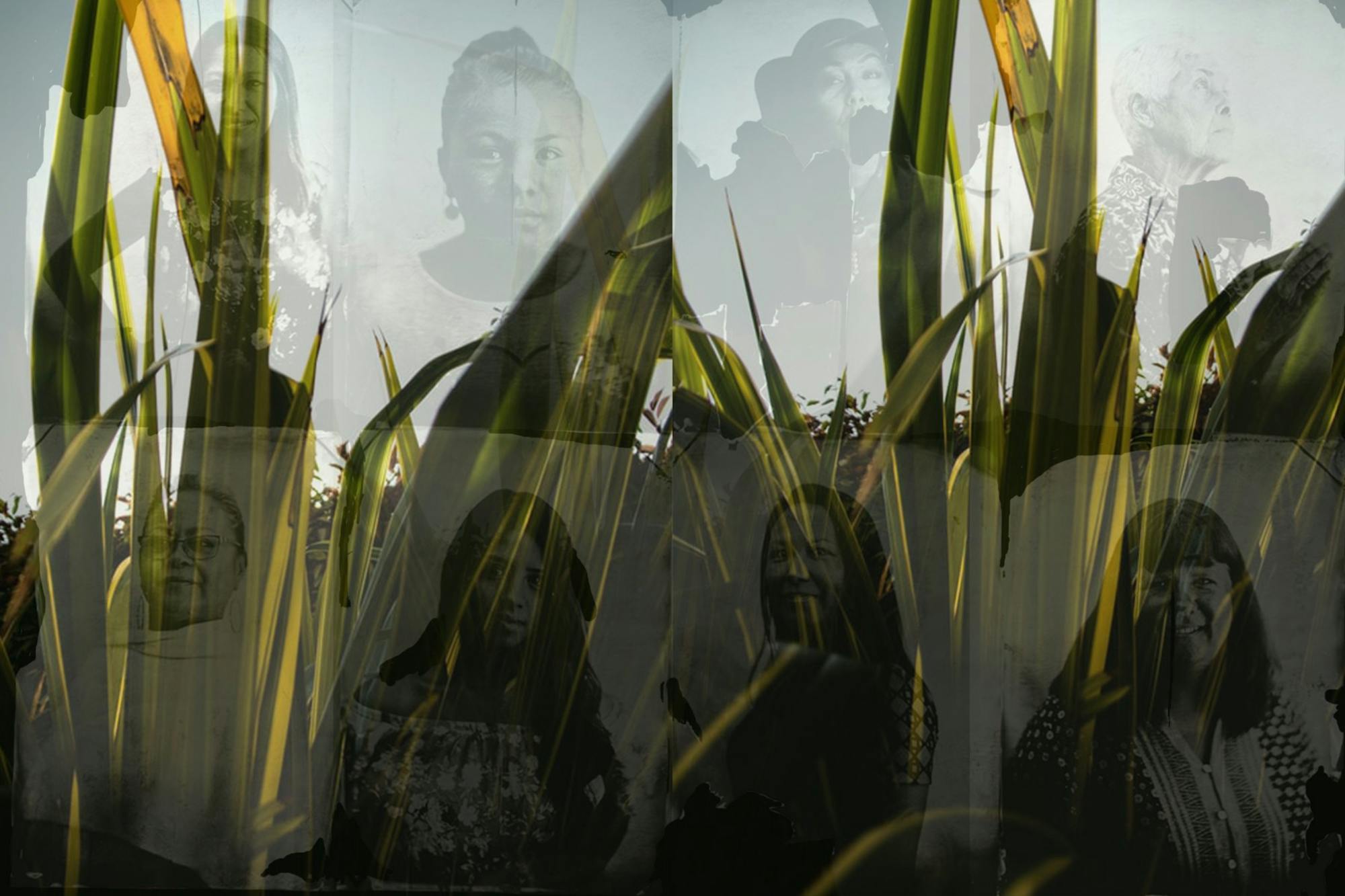This article is featured in the 2020 Commencement special issue.
While majors in the arts remain some of the least common at the College, Dartmouth’s arts programs continue to draw in students. In interviews with The Dartmouth, seniors reflected on their artistic development in the past four years — and while each story was different, all were bound by the unifying theme of art as an avenue for self-exploration.
While some seniors came into Dartmouth intending to major in the arts, others happened upon it during their academic journey. Jennifer Lopez ’20, a studio art major, originally planned on majoring in biomedical engineering or computer science. Her plans changed when she began to appreciate studio art as a medium to explore her identity and experiences with immigration and trauma.
“Minority students try to go into STEM fields to get their family out of the situation they are in,” Lopez said. “It was difficult to tell my parents that I was going to major in studio arts, and that one of the biggest challenges [was] trying to identify who I was, not trying to please other people.”
Gabriel Zuckerberg ’20, a music and neuroscience double major, said that he began college with a strong interest in the intersection of music, language and cognition. Drawing on his personal experience as a member of the Jewish diaspora, Zuckerberg grew especially interested in preservation of the musical traditions of Romaniote Jews. Ethnomusicology — a study that examines the relationship between music and culture — serves as the basis for both his Stamps Scholar project and his honors thesis.
“A lot of the music cognition literature focuses on Western classical music, and that limits the views of researchers as they come into learning other music traditions,” Zuckerberg said.
When seniors reflect on their artistic journeys, they often recount struggles along the way. For many arts majors, the COVID-19 pandemic presents an unprecedented challenge to their culminating experience. In some cases, the pandemic has reshaped the emotional content of their work.

Kerrigan Quenemoen presented her honors thesis project, “Inhibit/ed,” via a livestreamed performance on May 29.
Kerrigan Quenemoen ’20, a theater major, initially did not intend to relate her senior project to the pandemic. However, her play “Inhibit/ed” deals with themes such as isolation and mental health, which are closely connected to experiences in quarantine.
“There are two juxtaposing forces — [the main character] is fighting against herself and things in life that are happening to her,” Quenemoen said. “[The play] is not [depicting] someone in quarantine, but there are definitely some common threads that I’ve tried to tie back to how people are feeling now.”
Computer science professor James Mahoney said he noticed that many seniors in his course COSC 27, “Projects in Digital Arts” have chosen to work on topics that are deeper, darker and more personal compared to past students.
“You can see in the imagery that people are struggling or suffering, and I didn’t see too many students doing that [before],” Mahoney said. “But [the classroom] is a safe place for people to work through some difficult emotional experiences, and I encourage them to use art as an outlet for themselves.”
Mahoney was especially impressed by Lopez’s project, which uses animated title sequences and images to visualize a poem by Gloria Anzaldúa about the struggles of Mexican Americans living in the borderlands.
“I really wanted to see images represented visually when I read the poem, because [the poem has] so many things that spoke to me and that I was questioning in my own artwork,” Lopez said. “It is the borderland between identifying as Mexican but also American, and I tried to think about various ways to keep the poem close to its roots with Mexican images.”
In addition to exploring one’s identity, creating art can help students to understand their limitations and deal with failure.
“It’s easy to get bogged down by this idea [that] if I’m not succeeding at Dartmouth, then I’m not going to succeed in the real world where it’s so much more competitive,” Quenemoen said. “It was a good journey of self-realization to know that not everything I do is going to be mind-blowing good, and that’s okay.”
Despite potential concerns, arts majors are able to explore a variety of post-graduate paths.
Quenemoen’s mentor and theater professor Peter Hackett advises many students about their careers. He believes a theater major not only prepares students for entering the professional theater industry, but also connects them to a variety of possibilities.
“I try to give [students] real professional guidance, such as the best conservatories to go to [and] what theaters have acting programs or internships, and prepare them with their auditions and portfolios,” Hackett said. “We [also] have theater majors who are pre-med and went to law school, so you’re not shrinking your possibilities — you’re increasing your possibilities.”
Quenemoen, who decided to enter the theater industry after graduation, expects the process to be “daunting.” Fortunately, she has received support from peers and professors. Quenemoen is planning to pursue a theater fellowship at Northern Stage in White River Junction, Vermont next year, where she said that she will be exposed to a variety of fields in professional theater, including acting, directing and theater education.
Zuckerberg said that he is planning to further pursue his interest in music cognition and ethnomusicology by pursuing a Ph.D. Meanwhile, Lopez said that she is considering either continuing her focus on studio arts in graduate school or working in an arts-related nonprofit.



